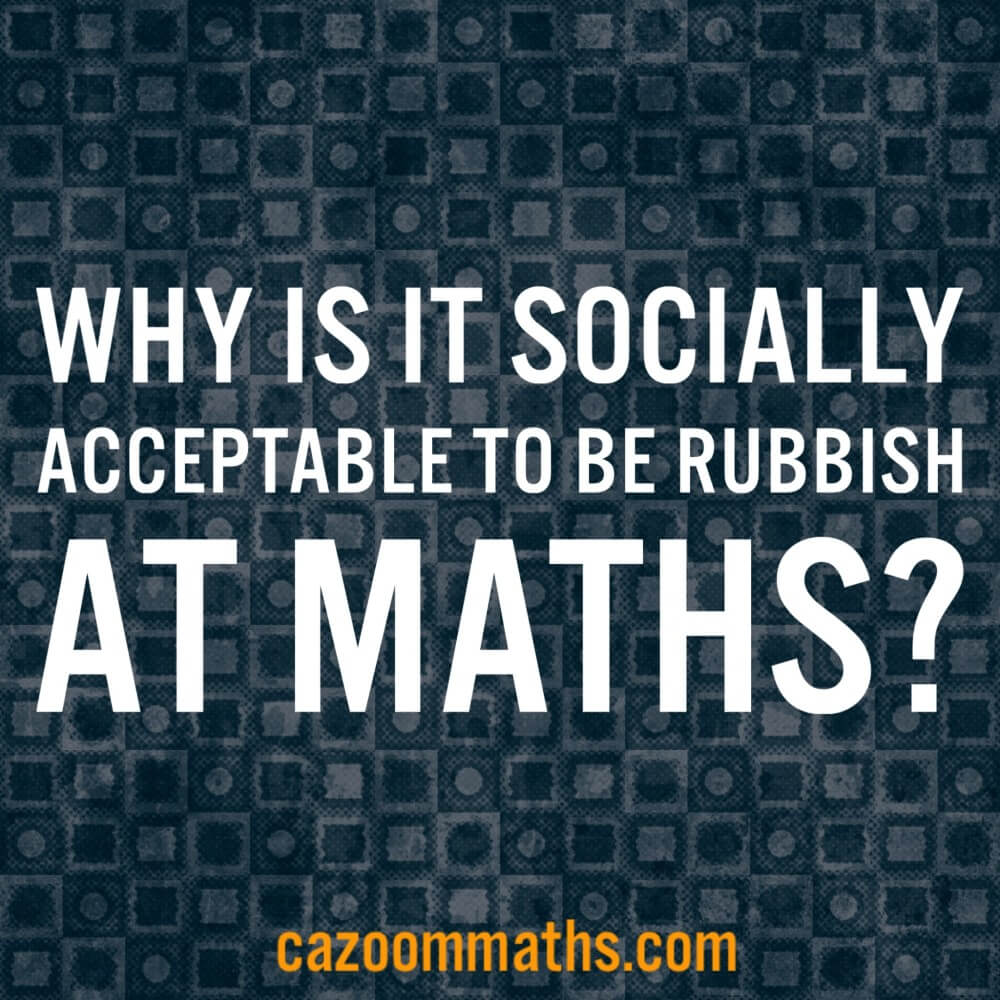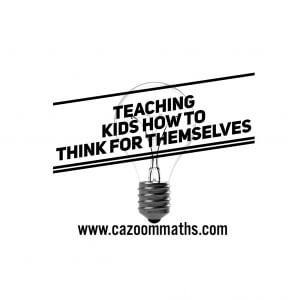"I'm rubbish at thinking", "I'm rubbish at problem solving", "I'm rubbish at life". These statements seem rather odd don't they? And yet, the statement, "I'm rubbish at maths" has become not only socially acceptable, but even somewhat 'cool'.
I often use social media to find jokes and maths related items in order to share with you guys. It's incredible how many negative things relating to maths I find. On Facebook for example, groups called 'I hate maths' pop up in searches, on Instagram you'll find acronyms for maths like "mental abuse to humans". This may seem like harmless jeer, but it's rather sad when you think about it.
Maths, in order to be 'good' at it, requires, I believe, being good at 1) problem solving, 2) sequential thinking, 3) understanding and contextualising problems. These skills are highly important in being good at life. It is highly desirable therefore, and in our best interest to be good at maths. It should be cool to be good at maths!
I'm an avid proponent of the power of thought and the words they create. Asserting that one is rubbish at maths makes it so much more difficult to ever get good at it. What we affirm tends to come true. This phenomenon has been called self-fulfilling prophecy in sociology, and the placebo effect in science. If we think that something is true or going to happen, it usually is or does.
The connection between confidence and maths has been studied thoroughly at university level. There is wide evidence to suggest that confidence in maths, more often than not, is a prerequisite to performing well in maths. Like many things, our mathematical ability falls on a spectrum. There will always be people who struggle more at it than you do, as well as people who find it easier than you do. Because of its relativity, we are all in a powerful position to decide if we are good or bad at maths. Where we put ourselves will affect our confidence either positively or negatively, and therefore to some extent determine whether we are good or bad at maths.
Some people believe that maths is the hardest subject to teach. If this is true it's probably not helped by the fact that students, and often the most challenging ones, are very quick to brandish themselves with the "I'm rubbish at maths" assertion. It's also surprising and alarming how many times I've heard parents during parents' evenings affirm that they are also "rubbish at maths". As teachers and indeed as parents, it is vitally important that we do not in any way condone the “I’m rubbish at maths” mantra as either normal or acceptable.
By changing our attitude towards maths we put ourselves in a much better position to get better at maths. Surely learning how to solve problems, organise our thoughts and contextualise abstract concepts is to be desired? If maths does create a platform from which one can become a more confident person, then beating ourselves up for being rubbish at it does little for our confidence. Maybe one day we won't feel comfortable brandishing ourselves as rubbish at maths, then again, I'm rubbish at imagining a better future. I hope not! 🙂


